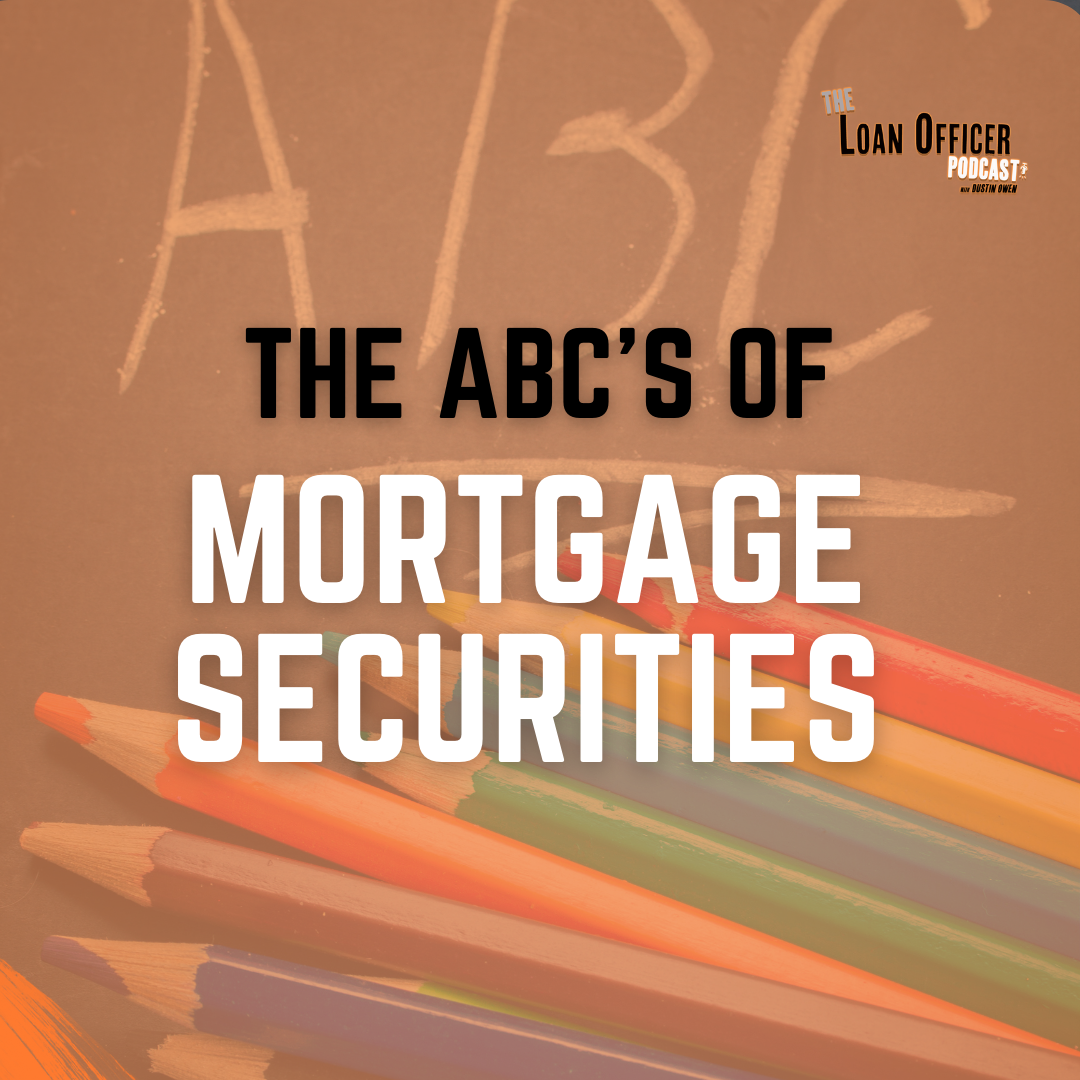One of my favorite sources for industry news is Rob Chrisman. I subscribe to Rob’s daily e-mail called, “The Chrisman Commentary”. Inside of Rob’s January 13th, 2024 “Commentary” was the below that covers, “The ABC’s of Mortgage Securities”.
Here’s what Rob wrote:
The A B Cs of mortgage securities, for dummies like me
_________________________________________________
What’s the difference between government bonds and men? Bonds mature.
Don’t worry… I won’t make your eyes glaze over. The question always comes up, “Rob, when my capital markets staff says, ‘Bonds are going down’ do they mean in price or yield are going down?” Price is not the same thing as yield. But usually if someone in capital markets says that “The market is going down” that typically means that mortgage-backed security prices are going down, and rates are going up.
I’ll give you an example. Let’s say a year ago MBS investors were buying 3 percent Freddie and Fannie securities at par, or 100, or dollar for dollar. Now, however, they can buy those same securities and earn 6.5 percent.
Why would anyone want to earn 3 percent when they can earn 6.5 percent on their money? No one would. But what if they could buy those 3 percent securities, not at a price of 100, but at a price of 85 or 90 cents on the dollar? And that discounted price gives an investor a yield of 6.5 percent?! At that point, an investor may be indifferent about buying a new bond yielding 6.5 percent at 100 or an older bond yielding 3 percent at 85.
But wait, there’s a little more! Which one is going to be on the books longer? Or has less credit risk if the economy moves into a recession? That is reflected in the value of the servicing, so even though the price of the bond can be calculated mathematically, the actual price of the MBS will be influenced, or muted, by other factors.
That’s the basic reasoning in the price/yield discussion. But moving on to some bond basics, mortgage-backed bonds consist of pooled mortgages on real estate, residential mortgages in our case. But investors in fixed-income securities have other options and may shift their purchases and holdings based on minute differences in the perceived value of various instruments. Short-term U.S. Treasury Bills, longer-term Treasury securities (notes and bonds), Treasury Inflation Protected Securities (TIPS), municipal bonds issued by cities and towns, Agency Bonds sold to fund federal agriculture, education, (and mortgage lending programs), corporate bonds issued by companies, junk bonds (typically corporate bonds), and convertible bonds (corporate bonds that can be converted into stock at certain times throughout the term of the bond), are all out there in various ways.
Many bonds are issued for a specific length of time, called the “term to maturity.” A fixed amount of interest gets paid to the investor every six months or year, and the principal investment gets paid back at the end of the loan period, on what is called the maturity date. In some cases, the interest is paid in a lump sum on the maturity date along with the principal investment funds. But MBS are different: borrowers may refinance or sell their home and pay off their portion of the MBS.
In general, bonds in the secondary market are priced based on their interest rate, their maturity date, and their bond rating. Notes with higher interest rates and more years left until maturity are worth more than those with low rates and those that are nearing maturity. But as noted a few times above, MBS have the added complexity of prepayment risk influencing the prices that investors will pay. And investors often demand a higher yield to compensate for the possibility of prepayment.
As noted above, a Mortgage-backed Security (MBS) is a debt security that is collateralized by a mortgage or a collection of mortgages. An MBS is an asset-backed security that enables investors to profit from the mortgage business without the need to directly buy or sell home loans. Lenders may issue their own MBS, or sell the loans to aggregators who do that, or sell loans to Freddie Mac or Fannie Mae, or securitize FHA & VA loans through the Ginnie Mae program.
MBS often end up with insurance companies or pension funds. When an investor buys a mortgage-backed security, it is essentially lending money to home buyers. In return, the investor gets the rights to the value of the mortgage, including interest and principal payments made by the borrower. Lenders selling the mortgages they hold enable banks to lend mortgages to their customers with less concern over whether the borrower will be able to repay the loan. The bank acts as the middleman between MBS investors and home buyers. Who is servicing the loan matters, especially during times of refinancing.
Ginnie, Fannie, and Freddie? As a response to the Great Depression of the 1930s, the government established the Federal Housing Administration (FHA) to help in the rehabilitation and construction of residential houses. The agency assisted in developing and standardizing the fixed-rate mortgage and popularizing its usage. In 1938, the government created Fannie Mae, a government-sponsored agency, to buy the FHA-insured mortgages. Fannie Mae was later split into Fannie Mae and Ginnie Mae to support the FHA-insured mortgages, Veterans Administration, and Farmers Home Administration-insured mortgages. In 1970, the government created another agency, Freddie Mac, to perform similar functions to those performed by Fannie Mae.
Freddie and Fannie charge gfees. Why? They guarantee timely payments of principal and interest on these mortgage-backed securities. Even if the original borrowers fail to make timely payments, both institutions still make payments to their investors. Know that the government does not guarantee Freddie Mac and Fannie Mae. If they default, the government is not obligated to come to their rescue. However, the federal government does provide a guarantee to Ginnie Mae. Unlike the other two agencies, Ginnie Mae does not purchase MBS. Thus, it comes with the lowest risk among the three agencies.
Does that help?
If you want to subscribe to Rob’s commentary, click here:


Leave a Reply